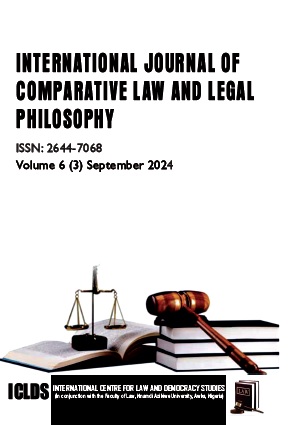THE ROLE OF CUSTOMARY LAW IN STRENGTHENING THE PRIMARY HEALTH CARE SYSTEM IN NIGERIA
Keywords:
Customary Law, Primary Healthcare, Health Governance, Community Participation, Legal PluralismAbstract
Primary Health Care (PHC) is the foundation of Nigeria’s health system, but it faces persistent challenges of weak infrastructure, poor funding, and low community trust. While statutory law provides the formal framework for PHC, customary law continues to shape the daily lives of millions of Nigerians, especially in rural areas. This paper argues that, despite its legal and institutional constraints, customary law can be formally integrated into PHC governance to enhance legitimacy, access, and accountability. Using the lens of legal pluralism, decentralization, and social legitimacy, the paper shows how customary institutions-chiefs, elders, and community courts-can support health education, dispute resolution, land allocation, and cultural adaptation of health services. It proposes a policy framework that recognizes customary law within PHC delivery, while ensuring alignment with statutory law and human rights. The conclusion emphasizes that integration must be carefully regulated, rights-based, and supported by legislation, training, and resources.

